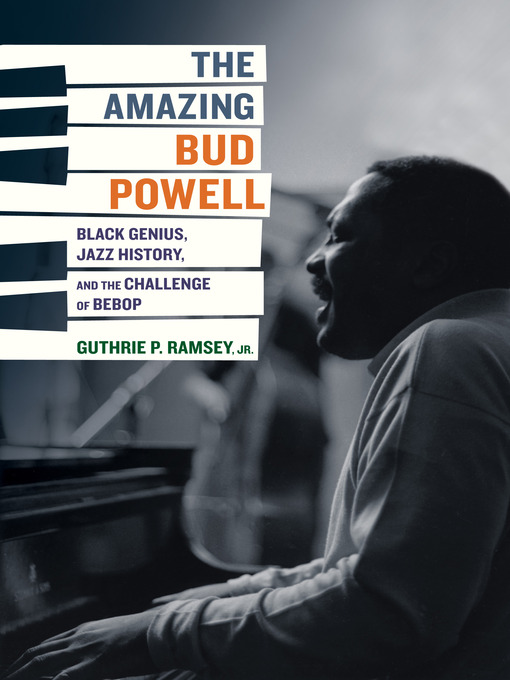The Amazing Bud Powell
Black Genius, Jazz History, and the Challenge of Bebop
-
Creators
-
Publisher
-
Release date
April 15, 2013 -
Formats
-
Kindle Book
-
OverDrive Read
- ISBN: 9780520955158
-
EPUB ebook
- ISBN: 9780520955158
- File size: 6679 KB
-
-
Languages
- English
-
Reviews
-
Publisher's Weekly
June 17, 2013
Ramsey's second book (after Race Music: Black Cultures from Bebop to Hip-Hop) aims to understand "one of jazz's greatest and indeed most mysterious stars" from a variety of perspectives. He takes in bebopâfrom East to west and back West againâwith consideration given to the social, political, and economic contexts of its day, as well as the concept of the free-spirited, convention-defying "musical genius" (in Ramsey's view "the ultimate construction of the bourgeois subject"). It is a lot to take on in such a brief book and Ramsey doesn't quite pull it off. His tendency to quote in fullâoften unnecessarilyâand his occasional isolation of mundane details drain energy from his subjects. For instance, the author makes fine observations on how "the jazz industry" of the '40s and '50s took advantage of Black musicians, but then goes into no further detail about just how Powell's life and work were affected. What starts as an engaging criticism winds down into a pedestrian biographical observation with admirable but unrealised ambitions; it's jarring, and by trying to say a lot, results, inversely, in not saying enough. -
Library Journal
October 1, 2013
The task Ramsey (music, Univ. of Pennsylvania; Race Music: Black Cultures from Bebop to Hip-Hop) sets for himself in this volume is not just to explore and interpret jazz through the vehicle of pianist Bud Powell (1924-66) but rather to explore and interpret the history of how jazz has been interpreted. While this work is certainly a well-deserved study of Powell, it may be more accurate to say it is a look at the travails of being taken seriously as a jazz artist and, more important, a black artist. Powell's life was filled with the demons that seem tragically tied to creative genius: alcoholism, mental distress, and the difficulty of finding one's place in the world. While Ramsey openly states that this book is not an exhaustive biography of Powell, it is a deeply moving depiction of a gifted artist and the music he felt called to perform, embody, and push forward throughout his career. VERDICT A perceptive and thorough study of a fascinating subject, this important addition to the history of jazz is recommended for all libraries.--Peter Thornell, Hingham P.L., MA
Copyright 2013 Library Journal, LLC Used with permission.
-
Loading
Why is availability limited?
×Availability can change throughout the month based on the library's budget. You can still place a hold on the title, and your hold will be automatically filled as soon as the title is available again.
The Kindle Book format for this title is not supported on:
×Read-along ebook
×The OverDrive Read format of this ebook has professional narration that plays while you read in your browser. Learn more here.


